We spend a lot of time beating the drums of conservation, talking about the need to prioritize the preservation of clean water and healthy landscapes. We do it because we believe the message is simple: conserving our rivers, forest, streams and so on is good business. Not just in the sense that it allow us to pass down our hunting and fishing heritage to the next generations, but that it is literally good business; for those of us in the outdoors industries, the health of our businesses rely on the health of our lands and waters. Orvis, driven by its CEO Perk Perkins, is one of the companies that seems to understand these concepts particularly well.

Anglers have grown accustomed to seeing Orvis' name attached to countless important conservation efforts that are tied directly to preserving, protecting and improving our fisheries. Whether that is through their support and partnerships with the Save Bristol Bay campaign and other Trout Unlimited efforts, American Rivers, the Wild Steelhead Coalition, the Atlantic Salmon Federation, the Deschutes River Alliance or The Bonefish and Tarpon Trust, Orvis's commitment to fisheries conservation is well demonstrated widespread.
But Orvis' commitment to preserving the great outdoors extends well beyond fisheries conservation -- to efforts such as tiger conservation, battling elephant poaching and habitat conservation for ruffed grouse.conserving the Northern Great Plains -- efforts of Perkins and Orvis which are highlighted in a recent piece in the Spring 2015 issue of World Wildlife Magazine. Within, Perkins calls his commitment to conservation "an obligation," adding, "It’s my pay-to-play—my price of admission".
The article goes on to state,
As CEO of Orvis, the outdoor equipment and apparel company owned by his family, Perkins seamlessly blends his appreciation for the natural world with how he runs his business. He institutionalized the company’s commitment to conservation—leveraging customer philanthropy with 5% of pre-tax profits to support conservation projects and effective organizations—and his professional mantra is that Orvis succeeds when people connect with the outdoors. He believes that without a healthy environment, Orvis wouldn’t have the successful business that it does, so he considers the company’s support of conservation to be a long-term investment in their market.
Perkins goes on to note that, “I am so inspired by people who devote their lives to promoting and protecting nature,” says Perkins. “So I try to do a little bit every day to make my life, and the lives of others, more compatible with the natural world.”
Read the whole piece here.








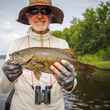
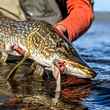
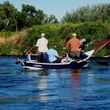





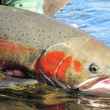

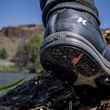





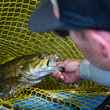
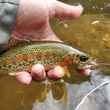




Comments
Todd Tanner replied on Permalink
Kudos to Orvis, and to the entire Perkins family, for their ongoing efforts to protect our woods & waters for future generations. Their commitment to conservation, and to our kids and grandkids, is vitally important. They deserve both our thanks and our appreciation.
Pages